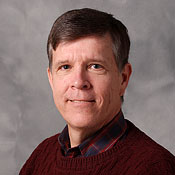Contact Information

Laren M. Tolbert
Professor Emeritus
Awards
Named Regents' Professor, 2006; NSF Discovery Corps Fellow in 2005-2006; served as Professor-in-Residence at Clark Atlanta Universit; Mercator Fellow, 2003-2004; Georgia Tech Faculty Author Award, 2003; Fellow of the American Association for the Advancement of Science, 2000; Alfred P. Sloan Fellow, 1983-85; American Chemical Society Award, Phi Beta Kappa, Magna cum Laude, (Tulane University), 1970; Eastman Kodak Scientific Research Award (University of Wisconsin), 1974; National Science Foundation Fellow, 1971-74; Wisconsin Alumni Research Foundation Fellow, 1970-71
Education
B.A., Tulane University, 1970; Ph.D., University of Wisconsin, 1975; Postdoctoral fellow, Harvard University, 1975-1976
Research
Dr. Tolbert's research deals with the application of mechanistic organic chemistry to a variety of problems in synthetic chemistry, photochemistry, biochemistry, and materials science. Taking the broad view that most problems of structure and function in biochemistry and materials science are, at heart, problems in mechanistic organic chemistry, he has sought to apply the diversity of tools available to the modern physical organic chemist to bear on these problems. For instance, the structure of charge carriers in conductive polymers has been probed by synthesizing models for "solitons", the presumed charge carriers in such systems. Similarly, by consideration of the excited-state charge distribution in their conjugate anions, molecules have been synthesized which exhibit enormous differences in excited-state acidities, allowing kinetic studies of proton transfer to weak bases. Finally, the application of modern techniques to the efficient synthesis of old and new polymer structures is under active investigation. These include smart thin films for lithography at extremely small dimensions and for molecular recognition through imprinted polymers.